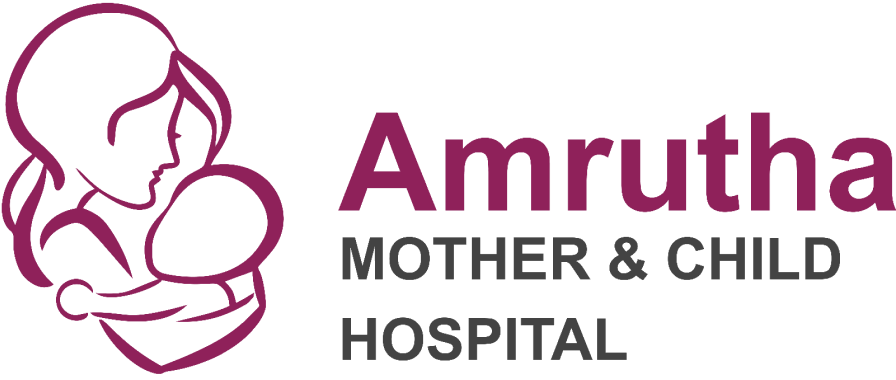

Pediatric Intensive Care Unit (PICU) Hospital In Kakinada
At Amrutha Mother and Child Hospital, we proudly offer one of the best Pediatric Intensive Care Units (PICU) in Kakinada. Our PICU delivers advanced, life-saving care for critically ill or injured children. We use modern medical technology and a dedicated team of pediatric specialists to support faster recovery and better outcomes.
Procedures in Pediatric Intensive Care Unit (PICU)
Ventilation and Respiratory Support
Children with breathing difficulties receive respiratory support through mechanical ventilation, CPAP, or BiPAP. Doctors choose non-invasive or invasive methods based on the child’s condition.
Intravenous Theropy
Doctors use IV lines to deliver fluids, medications, and nutrition directly into the bloodstream. This method helps children who cannot eat or take medicines orally.
Central Venous Access
For long-term or intensive treatment, specialists place central venous catheters. These lines allow accurate medication delivery, blood transfusions, and pressure monitoring.
Hemodynamic Monitoring
The PICU team closely tracks blood pressure, heart rate, oxygen levels, and other vital signs. Arterial lines provide precise, real-time measurements when required.
Sedation and Analgesia
Doctors provide sedation and pain relief to keep children comfortable during procedures. This approach reduces stress and supports healing.
Dialysis or Renal Support
Children with kidney failure receive renal replacement therapies such as hemodialysis or peritoneal dialysis to remove toxins and maintain balance in the body.
Nutrition Support
When children cannot eat normally, the team provides nutrition through feeding tubes or intravenous nutrition. Proper nutrition supports strength and recovery.
Blood Tranfusion
Doctors perform blood transfusions to treat severe anemia or blood loss. This treatment improves oxygen delivery to vital organs.
Neuroimaging and Neurological Monitoring
Doctors use CT scans, MRIs, and EEG monitoring to assess brain function. These tools help manage seizures, head injuries, and neurological conditions.
Surgical Procedures
Children who need emergency or planned surgery receive continuous care in the PICU. Surgeons and intensivists work together to prevent complications.
Sepsis Management
The PICU team treats sepsis with rapid antibiotics, fluids, and organ monitoring. Early intervention helps prevent life-threatening complications.
Cardiopulmonary Resuscitation(CPR)
In cardiac emergencies, trained specialists perform CPR and advanced life support. Quick action restores circulation and oxygen supply.
key considerations in a Pediatric Intensive Care Unit (PICU)
Specialized Pediatric Equipment
Our PICU uses child-specific ventilators, monitors, and infusion pumps designed for infants and children.
Expert Pediatric Care Team
The team includes pediatric intensivists, trained nurses, respiratory therapists, and specialists who work together around the clock.
Family-Centered Care
We encourage family involvement and provide regular updates. Emotional support helps both children and parents during critical times.
Pain and Comfort Management
Effective pain management and emotional care reduce stress and improve recovery.
Continuous Monitoring and Rapid Response:The Pediatric Intensive Care Unit in kakinada ensures constant monitoring and immediate response to any change in the child’s condition.
FAQs About Pediatric Intensive Care Unit (PICU)
What is the Pediatric Intensive Care Unit (PICU)?
The Pediatric Intensive Care Unit (PICU) is a special hospital area that provides advanced care for very sick or injured children who need constant monitoring.
When would a child need to be admitted to the PICU?
Doctors admit a child to the PICU when the child is very ill or injured and needs round-the-clock monitoring and specialized treatment.
What conditions are treated in the PICU?
The PICU treats severe infections, asthma attacks, heart conditions, neurological disorders, trauma, burns, and post-surgical cases.
How long will my child stay in the PICU?
The stay depends on the child’s condition. Some children recover in a few days, while others may need longer care.
Can I visit my child in the PICU?
Yes. Parents can usually stay with their child, though brief restrictions may apply during procedures.
What type of monitoring and equipment does the PICU use?
The PICU uses ventilators, heart monitors, IV lines, feeding tubes, oxygen therapy, and dialysis machines as needed.
Can I be with my child in the PICU at all times?
While there are designated visiting hours, parents or guardians are often allowed to be with their child at all times during the day and night, with some restrictions for medical procedures.
How can I support my child during their stay in the PICU?
Parents can comfort their child, communicate with doctors, and take part in care decisions.
What should I expect emotionally during my child’s stay in the PICU?
It’s normal to experience a range of emotions, including fear, anxiety, and uncertainty. The medical team will offer support, and counseling or parent support groups are available to help you cope.
What happens when my child is discharged from the PICU?
Doctors ensure the child is stable before discharge. Parents receive care instructions, medication details, and follow-up plans.
